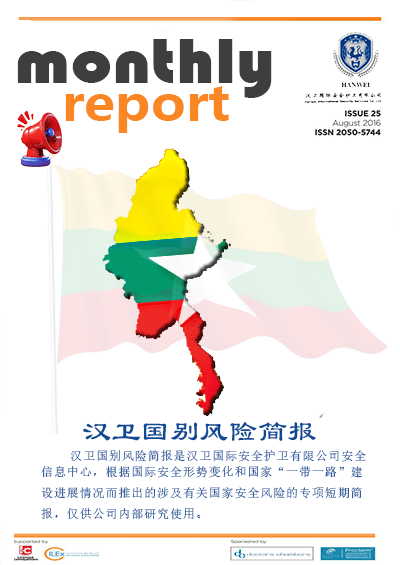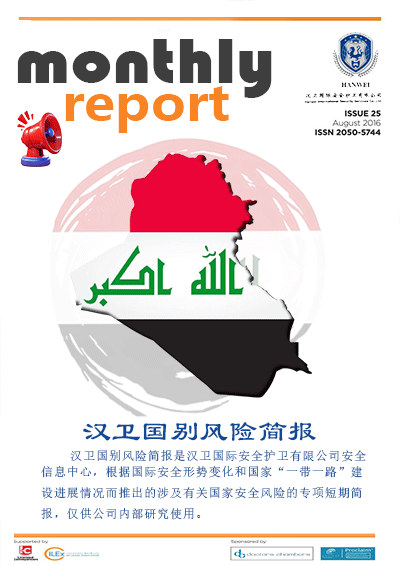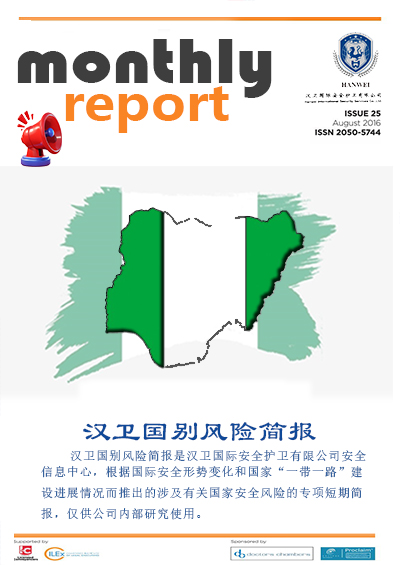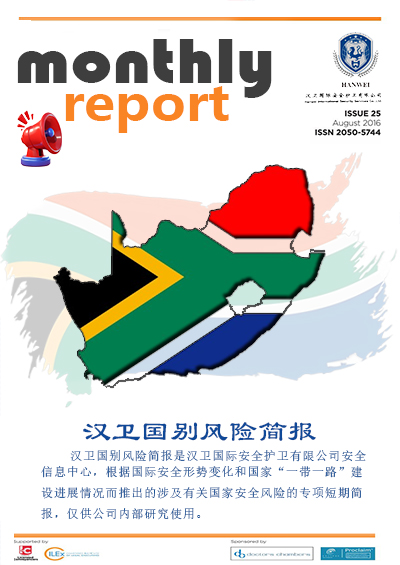Country Risk Security Brief:
South Africa05 Monthly Security Overview
006Researcher
According to monitoring reports from Hanwei International's South Africa security officers and related media coverage, Hanwei International analysis indicates that this month South Africa faces severe challenges in political economy, social security, and other aspects including human trafficking. Politically and economically, South Africa is caught in a vicious cycle of "high unemployment-heavy debt-violent protests," exposing long-standing structural issues of weak economic growth and unequal distribution, ultimately triggering violent public protests. Regarding social security risks, shootings, robberies/thefts, and kidnappings intertwine to form a complex criminal ecosystem, alongside rampant human trafficking and counterfeit goods industries.
I. Political and Economic Aspects
(1) Unemployment Crisis Spreads Across Multiple Provinces, Structural Contradictions Intensify
This month, South Africa's labor market continues deteriorating, with multiple provinces facing severe unemployment. According to Statistics South Africa's Q1 2025 Labor Force Survey, following Northwest Province's extreme 56% unemployment rate, Mpumalanga and Eastern Cape reached 49.3% and 49.0% expanded unemployment respectively, indicating these provinces may soon have more unemployed than employed populations. Nationally, the official unemployment rate rose to 32.9%, with 8.2 million unemployed and 16.8 million employed.
Significant disparities exist across sectors and regions. Sector-wise, finance and transportation saw slight employment growth, while construction, mining and agriculture declined. Regionally, Western Cape's economic diversity helped add 49,000 jobs, maintaining the nation's lowest unemployment at 19.6%. Conversely, Mpumalanga, Eastern Cape and Limpopo face severe crises due to weak infrastructure and single-industry economies. Experts warn that corporate layoffs and new graduates entering the job market are exacerbating labor market imbalances, requiring urgent targeted regional policies to prevent loss of control.
(2) Rising Debt Costs Sound Fiscal Crisis Alarm
The IMF predicts that without effective solutions, South Africa will spend at least R800 billion (30% of tax revenue) on government debt interest by 2030, up from the current 21.7%. Analysis shows that rising debt costs will further squeeze social service expenditures, hinder growth, and potentially trigger sovereign credit downgrades.
Reduced social spending deteriorates public services, widening wealth gaps and fueling public discontent, which may escalate social conflicts.
(3) Public Anger Erupts in Violent Protest Clashes
On May 19, residents of Soweto's Diepkloof blocked the N12 highway protesting inadequate basic services (electricity, water, garbage collection), which escalated into violent clashes leaving 2 dead from vehicle impacts and multiple trucks looted.
This incident demonstrates how prolonged social grievances can erupt violently, with criminals exploiting chaos to threaten societal stability.
II. Social Security Risks
(1) Shootings
During U.S.-South Africa talks, billionaire Johann Rupert highlighted Cape Town's status as South Africa's murder capital. The Western Cape Gang Monitor reports 90-130 gangs with 100,000+ members (78% from poor backgrounds), exploiting 32.9% national unemployment (over 50% youth rate). Illegal firearms surged 47% since 2019.
Cape Flats saw two shootings in one week: On May 6, two youths were gang-executed; May 7, a 42-year-old man was shot dead in his car. On May 19, a 25-year-old woman was fatally shot outside a police station. Community groups demand military deployment.
(2) Robberies/Thefts
Recent crimes show diversified methods across regions and targets.
Home Invasions: A 93-year-old Durban man died after being beaten during a robbery; On May 6, armed intruders killed a 20-year-old and assaulted his sister after tying up their father.
Highway Robberies: The N11 highway near Newcastle saw brick-throwing hijackers causing R120,000 losses per incident; On May 9, British influencers were robbed after GPS misrouting.
Construction Sites: In KwaZulu-Natal, six gunmen stole 300L diesel from a P304 highway worksite.
(3) Kidnappings
Q1 2025 saw 61.7% more kidnappings year-on-year.
By Type: Traditional ransom demands (e.g., two women and children tortured for R50,000) coexist with "express kidnappings" targeting bank details.
Victims: Mostly business owners/executives, indicating wealth attracts kidnappers.
Locations: Gauteng accounted for 144 cases (two-thirds nationally), but Eastern Cape and KZN also saw incidents in urban/rural areas alike.
III. Other Risks
(1) Human Trafficking in Sandton
Despite being Johannesburg's financial hub, Sandton's crime index reached 66.16 (safety: 33.84). On May 1, police found 44 Ethiopian men in a suspected trafficking case.
(2) Counterfeit Crackdown
Fake goods comprise 15% of consumer markets. On May 8, police seized R1.8 million in counterfeit items in Lenasia. This illegal industry threatens legitimate businesses and workers.
Hanwei International recommends: 1) Monitor social unrest, avoid high-risk areas; especially protest-prone provinces like Northwest and Eastern Cape. 2) Enhance security measures; install surveillance, avoid night travel in Johannesburg/Cape Town hotspots. 3) Beware hidden risks; women/youth should be vigilant against trafficking, while businesses must verify supply chains.




